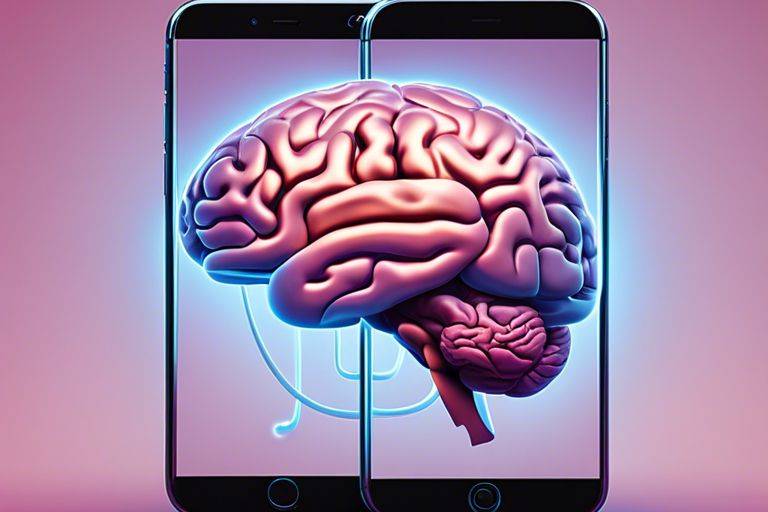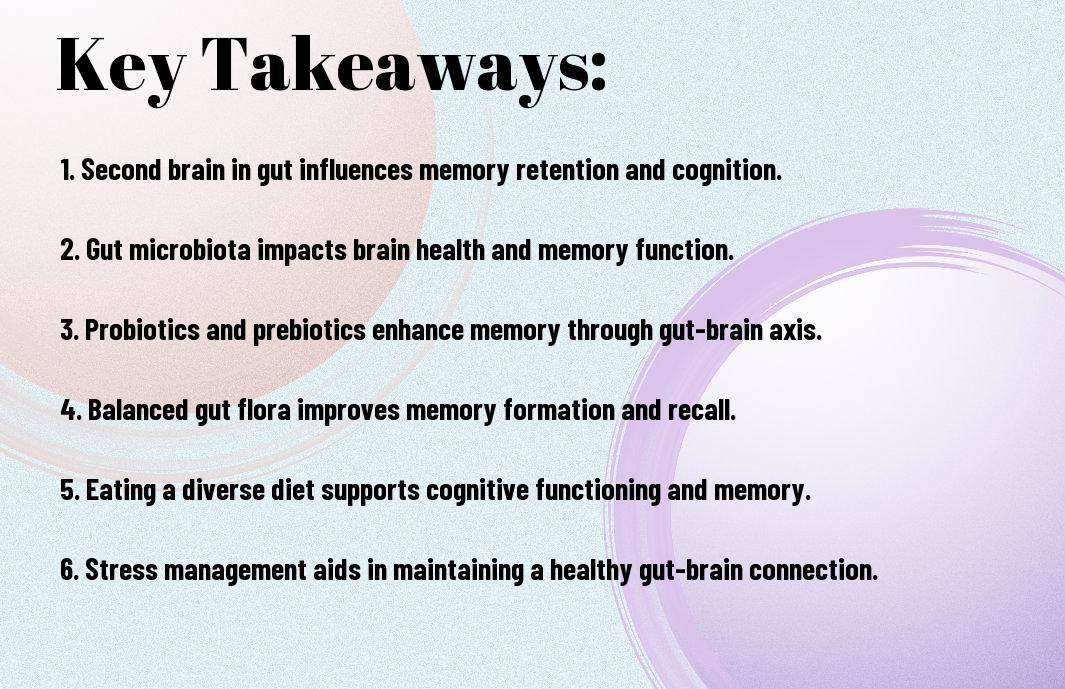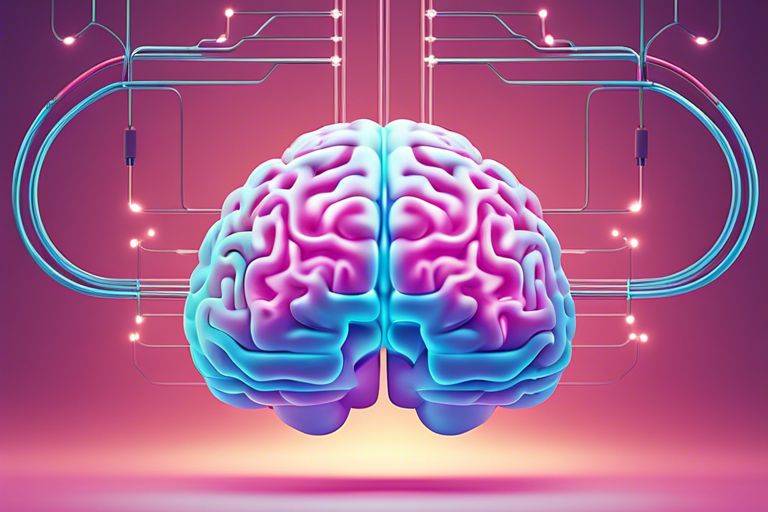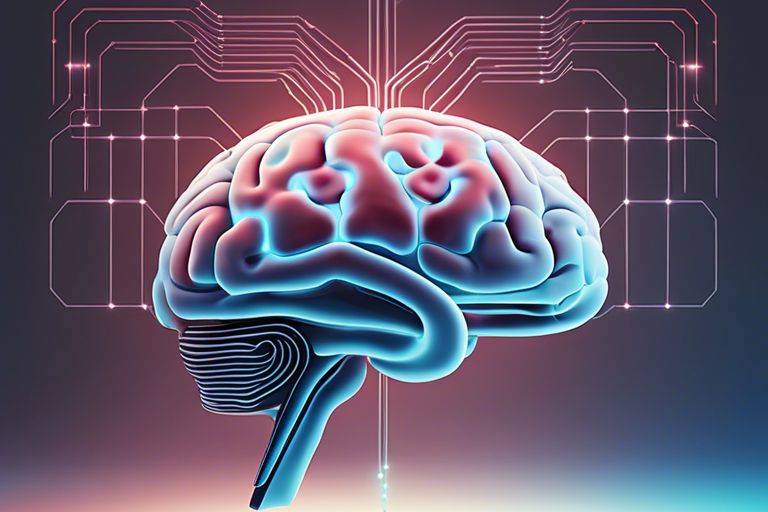
Newsletter Subscribe
Enter your email address below and subscribe to our newsletter

Enter your email address below and subscribe to our newsletter

It’s fascinating how our bodies possess a second brain that plays a crucial role in enhancing our memory retention. The concept of the second brain, or the enteric nervous system, highlights the intricate connection between our gut and brain, ultimately impacting our cognitive functions. Understanding how to leverage this relationship can lead to improved memory and overall brain health. To dive deeper into this topic, check out How to Augment Your Memory with Your Second Brain.

With recent advancements in neuroscience, researchers have begun to unravel the mysteries of the “second brain” – the enteric nervous system (ENS). The ENS is a complex network of neurons located in the lining of the gastrointestinal tract, functioning independently from the central nervous system to regulate digestion, secretion, and motility of the gut. This intricate system plays a vital role in not only our physical well-being but also our cognitive functions.
With growing interest in the gut-brain axis, scientists are discovering the profound impact of the gut on our mental health. The gut-brain connection refers to the bidirectional communication between the ENS and the central nervous system, influencing mood, behavior, and cognition. Strong evidence suggests that imbalances in gut flora can lead to mental health disorders such as anxiety and depression.
Connection: The intricate relationship between our gut and brain highlights the importance of maintaining a healthy gut microbiome through a balanced diet rich in fiber, fermented foods, and probiotics. By nurturing our “second brain,” we can enhance memory retention, cognitive function, and overall well-being. Understanding and harnessing the power of the gut-brain connection is key to optimizing our mental and physical health.

Keep Supercharge Your Work with Tiago Forte’s Second Brain Concept in mind to enhance memory retention. Memory is a complex process involving various regions of the brain working together to form and store information. The hippocampus, a key structure in the brain, plays a crucial role in the formation of new memories. Neurons in the hippocampus communicate with other brain regions to encode and consolidate memories, creating neural pathways that allow for the retrieval of stored information.
Memory formation involves three key stages: encoding, consolidation, and retrieval. During encoding, sensory information is processed by different brain areas and transformed into a neural code that can be stored. The consolidation phase involves the stabilization of these encoded memories, strengthening the connections between neurons. Finally, retrieval occurs when stored information is accessed and brought back into conscious awareness. This intricate process relies on the efficient functioning of neural networks and synaptic connections throughout the brain.
With different types of memory serving unique functions, our brains have evolved to store information in diverse ways. Explicit memories, also known as declarative memories, are those we consciously recall, such as historical facts or personal experiences. In contrast, implicit memories are formed unconsciously through repeated practice or conditioning, influencing our skills and habits.
For instance, explicit memories are further divided into semantic memories, which are related to general knowledge, and episodic memories, which involve personal experiences. On the other hand, implicit memories include procedural memories, responsible for motor skills and routines, and emotional memories tied to past events or associations. Though the distinct types of memory have separate processes, they collectively contribute to our overall cognitive abilities and experiences.
Not all memories are created equal. The intensity of an experience, the relevance to your life, and the repetition of the information all play a crucial role in memory retention. Our attention span and focus also affect how well we retain information. The brain prioritizes memories based on their importance and emotional impact.
After understanding the cognitive factors that influence memory retention, we can optimize our learning techniques to enhance our ability to recall information more effectively.
Retention may also be influenced by emotional events, as the brain tends to remember emotions associated with a memory rather than the specific details of the event. Stress and anxiety can impair memory retention, while motivation and interest can enhance it. Our mental state and attitude towards the information also play a significant role in memory retention.
This emphasizes the importance of creating a positive and conducive environment for learning, as it can significantly impact our ability to retain and recall information effectively.
To optimize memory retention, it is imperative to engage with the material actively, create connections between new information and existing knowledge, and practice retrieval methods regularly. By paying attention to these cognitive, emotional, and psychological factors, you can enhance your memory retention and improve overall learning outcomes.
Despite the brain traditionally being seen as the sole controller of cognitive function, studies have shown that the gut plays a significant role in influencing memory and learning abilities. The connection between the gut and the brain, known as the gut-brain axis, emphasizes the impact of nutrition on cognitive function.
Axis: The gut-brain axis is a bidirectional communication system between the central nervous system and the enteric nervous system of the gut. Nutrition plays a key role in maintaining the health of the gut microbiota, which in turn influences cognitive processes. Diets high in processed foods and sugars have been linked to inflammation in the gut, leading to cognitive impairments and memory issues.
One: Probiotics are beneficial bacteria that help maintain the balance of microorganisms in the gut. Research has shown that consuming probiotics can improve memory function and cognitive performance. Probiotics work by reducing inflammation in the gut, which can have a positive impact on memory retention and learning abilities.
Brain: Incorporating probiotic-rich foods like yogurt, kefir, and sauerkraut into your diet can support a healthy gut microbiome and enhance cognitive function. Adding probiotic supplements to your daily routine can also aid in improving memory retention and overall brain health.
All living organisms, including humans, have a complex ecosystem of bacteria residing in their gut, known as the gut microbiota. Research has shown that the health of our gut plays a crucial role in many aspects of our well-being, including brain function and memory retention. The gut-brain connection is a fascinating area of study that is shedding light on how the state of our gut can impact cognitive processes like memory.
Strategies for maintaining a healthy gut involve consuming a diet rich in fiber, as it promotes the growth of beneficial bacteria in the gut. Including fermented foods like yogurt, kimchi, and sauerkraut in your diet can also help replenish the good bacteria in your gut. Additionally, staying hydrated and managing stress levels are crucial for maintaining a healthy gut environment.
For those looking to enhance memory through gut health, certain supplements can be beneficial. Probiotics are live bacteria that can help restore the balance of gut microbiota, which may in turn improve cognitive function. Prebiotics, which are non-digestible fibers that feed the good bacteria in the gut, can also be useful in promoting a healthy gut environment for better memory retention.
Understanding the link between gut health and memory is imperative for optimizing cognitive function. By focusing on strategies that promote a healthy gut and considering supplementation to enhance memory, individuals can take proactive steps towards improving their overall well-being and memory retention.
Unlike traditional views of memory improvement that focus solely on mental exercises, the concept of the second brain considers lifestyle and environmental factors that can significantly impact memory retention. By making specific modifications to our daily routines and surroundings, we can create an optimal environment for our “second brain” to flourish and enhance memory functions.
An important aspect of optimizing our second brain for memory retention is implementing effective stress reduction techniques. Chronic stress can have detrimental effects on memory consolidation and retrieval processes. Practicing mindfulness, deep breathing exercises, yoga, and meditation are proven methods to reduce stress levels and improve overall cognitive function. These techniques not only calm the mind but also promote neuroplasticity, which is crucial for memory enhancement.
Exercise plays a vital role in boosting memory and cognitive function. Engaging in regular physical activity increases blood flow to the brain, which promotes the growth of new neurons and enhances synaptic plasticity. Cardiovascular exercises, strength training, and aerobic activities have been linked to improved memory retention and recall. In addition, exercise releases neurotransmitters like dopamine and endorphins, which not only elevate mood but also support memory formation.
Memory: Incorporating physical exercise into your daily routine is a powerful strategy for enhancing memory retention. By choosing activities that you enjoy and staying consistent with your exercise regimen, you can create a strong foundation for optimal cognitive function and long-term memory improvement.

Once again, we explore into how the second brain concept can revolutionize our approach to learning and memory retention. By understanding the pivotal role of the gut-brain axis in cognition, we can enhance educational techniques and tailor learning environments for optimal memory retention.
Second Brain concept sheds light on how educational techniques can be optimized to leverage the connection between the gut and the brain for improved learning outcomes. For instance, incorporating stress-reducing activities like mindfulness or exercise can positively impact the gut microbiome, which in turn enhances cognitive function and memory consolidation. Furthermore, implementing experiential learning approaches that engage both the mind and body can stimulate the second brain and reinforce learning.
Learning environments play a crucial role in memory retention, and the second brain concept underscores the importance of creating spaces that support both cognitive and gut health. Factors such as lighting, air quality, and ergonomic design can significantly impact students’ ability to focus and retain information. Additionally, incorporating elements that reduce stress and promote a positive emotional state can create an environment conducive to optimal memory retention.
Influenced by the second brain concept, educators can design learning environments that prioritize both mental and gut health. By creating spaces that promote relaxation, focus, and overall well-being, students can experience improved memory retention and enhanced cognitive function. This holistic approach to learning environments can pave the way for more effective and sustainable educational practices.
With this in mind, understanding the Second Brain concept and its impact on memory retention can lead to innovative strategies for enhancing cognitive abilities. By nurturing the gut-brain connection through a healthy diet, regular exercise, and stress management, individuals can optimize their brain function and improve their memory retention. Recognizing the intricate relationship between the gut and the brain opens up new possibilities for promoting overall well-being and cognitive health.
A: The Second Brain Concept refers to the idea that the gut, also known as the enteric nervous system, functions independently and communicates directly with the brain, influencing cognitive processes including memory retention.
A: The gut-brain axis allows the gut to send signals to the brain, impacting mood, cognition, and memory formation. A healthy gut can enhance memory retention through improved communication with the brain.
A: Gut microbes produce neurotransmitters that affect brain function, including memory. A diverse and balanced microbiome can support optimal brain health and memory retention.
A: A balanced diet rich in prebiotic and probiotic foods can promote a healthy gut microbiome, leading to improved communication with the brain and enhanced memory retention.
A: Foods like yogurt, kefir, sauerkraut, kimchi, bananas, garlic, and onions are known to support gut health and microbiome diversity, potentially enhancing memory retention through the Second Brain Concept.
A: Stress and mental health issues can disrupt the gut-brain axis, impairing communication between the gut and brain. This can negatively impact memory retention and cognitive function.
A: Regular exercise, stress management techniques, quality sleep, and maintaining a healthy diet can all support a balanced gut microbiome and optimize memory retention through the Second Brain Concept.